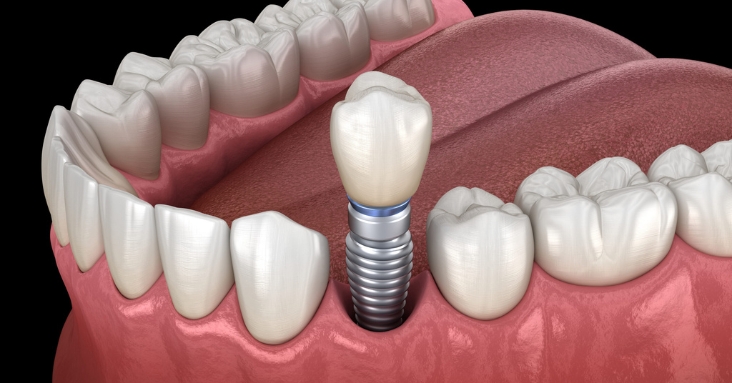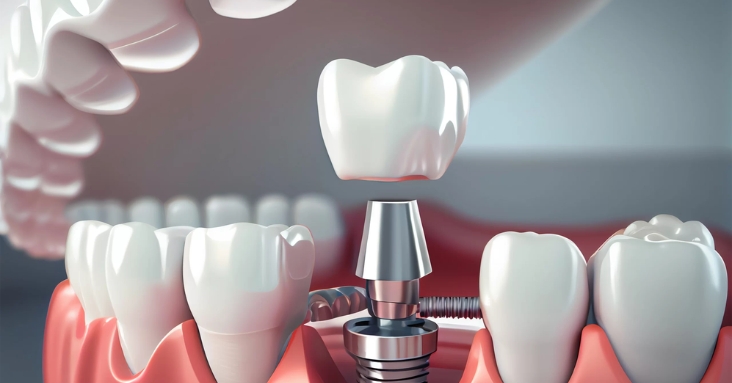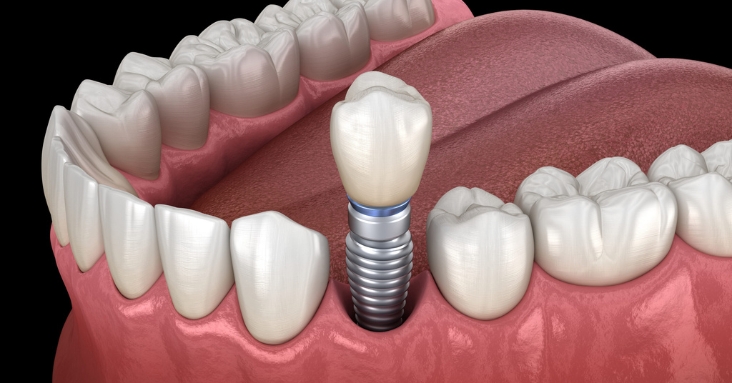Emergency & New Patients Welcome!

There’s no substitute for the confidence that comes with a complete, natural smile. But what do you do when one tooth is missing and leaves a space? You’ve most likely heard dental implants are the best long-term option. But the question is—how long do they last? Are they a lifetime investment, or is there a catch? Let’s separate fact from myth and get the facts straight so you can make an informed decision.
The Lifespan of Dental Implants: A Reality Check
Unlike dentures or bridges, dental implants bond directly with your jawbone, so they are extremely resilient. But do they last forever? Not quite. While the implant post itself can last for decades—usually a lifetime—the crown on top isn’t. With time, normal use, chewing forces, and lifestyle factors, wear can occur, so the visible part of your implant might need to be replaced after 10-15 years.
What Makes Implants So Durable?
Dental implants are made to work like real teeth, all thanks to their design:
- Titanium Post: This is a synthetic tooth root that integrates into the jawbone via osseointegration. Titanium is a biocompatible material, which means your body will not reject it.
- Abutment: This tiny connecting piece holds the crown in place on the implant post for stability.
- Crown: The visible portion of the implant, which is specially designed to match your natural teeth.
This three-piece design is why dental implants are the gold standard for tooth replacement. But durability is not just about materials.
Factors That Influence the Longevity of Dental Implants
Like natural teeth, implants also need maintenance. Here are some things that can affect their longevity:
1. Oral Hygiene Habits
Ignoring your implant can cause complications such as peri-implantitis—a gum infection that is akin to periodontal disease. Brushing, flossing, and regular dental check-ups keep bacteria under control and guard your investment.
2. Lifestyle Choices
Smoking hinders healing and causes implant failure. A diet with a lot of sugar or acidic foods also makes surrounding gum tissue weak, exposing implants to harm.
3. Bite Pressure and Teeth Grinding
Grinding or clenching (bruxism) puts too much force on implants, leading to fractures or loosening of components over time. If you grind your teeth, a nightguard can protect them.
4. General Health Conditions
Diabetes, osteoporosis, and autoimmune diseases can impair healing and bone density, which may shorten the life of an implant. But with proper care, implants can still be an option.
5. Implant Placement and Bone Health
The success of an implant depends on having sufficient bone to support it firmly. In the event of bone loss, other procedures, such as bone grafting, can be required to provide stability.
Do Some Implants Last Longer Than Others?
All implants are not of equal quality. Techniques, materials quality, and after-care have all bearing on longevity. Well-placed implants with top-shelf materials will last many times longer than bargain versions. That is why selecting the right dental practitioner in Fort Worth is important.
Can Dental Implants Fail?
Although uncommon, failure can result from infection, poor healing, or excessive stress on the implant. Symptoms of difficulty are pain, swelling, or movement of the implant. Routine dental checkups can detect possible issues early and avoid complications.
How to Make Your Dental Implants Last a Lifetime?
Want to ensure your dental implants last a lifetime? Here’s how:
- Brush twice a day with a soft-bristled toothbrush.
- Floss the implant daily to prevent plaque buildup.
- Don’t smoke or drink heavily.
- Wear a mouthguard if you clench your teeth at night.
- Make bi-yearly visits to your dentist for professional cleanings and exams.
Considering dental implants or want information on how to care for them? Our staff is here to assist. Call to schedule an appointment today and speak with our dentist about your choices and how to get started toward a smile that lasts.



